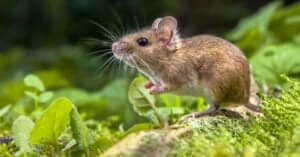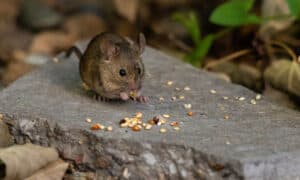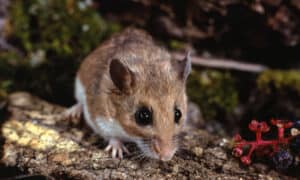If your car won’t start or your lights won’t turn on, you may have mice. Mice are notorious for getting into tight spaces and chewing through wiring, destroying electronics, and causing costly repairs. But the problems with chewed wires go far beyond inconvenience and large bills. Mice chewing on wires in your home can be incredibly dangerous, as electrical problems are a major cause of house fires. It is estimated that chewed or damaged wires due to mice may be the cause of up to 20% of undetermined structure fires in the United States. But wires and cords aren’t a food source and don’t look appetizing, so why do mice chew on them?
Mouse Teeth Grow Constantly and Fast
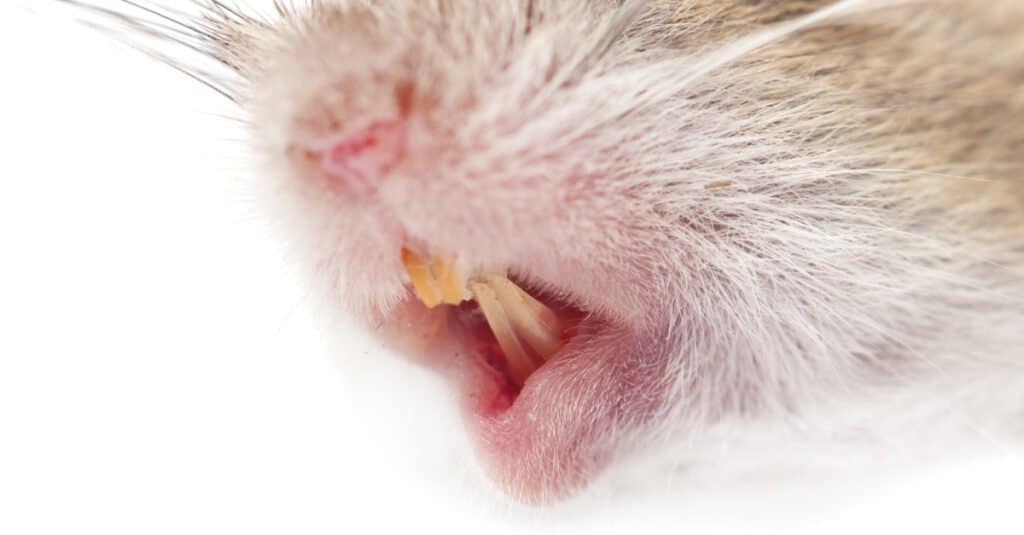
Mice don’t have canine teeth but only have four incisors, two premolars, and 12 molars.
©schankz/Shutterstock.com
Just like with other rodents, mice’s teeth never stop growing. Mice have two long incisors in the front of their mouth on both their top and bottom jaws. These incredibly hard teeth need to be constantly worn down, so they don’t become overgrown. Wearing the teeth down requires the friction that comes from biting and gnawing. So, to keep their teeth in good shape, mice have to chew — a lot. Mice chew so much that they wear their four incisors down and completely regrow them in just 35-45 days.
Many people think mice chew on wires because they like the taste and want to eat them but attempts at making wire insulation distasteful haven’t been successful. Even wrapping wires in tape infused with spicy capsaicin has failed to deter mice from chewing on wires! This implies that the mice aren’t attracted to the taste of wires, but to the convenience they provide. Wires, cables, and cords are plentiful in houses, garages, and cars, making them a popular item for mice to chew on. Additionally, wires are round and small, which makes them convenient for mice to hold onto while they chew.
Wire Gets in the Way
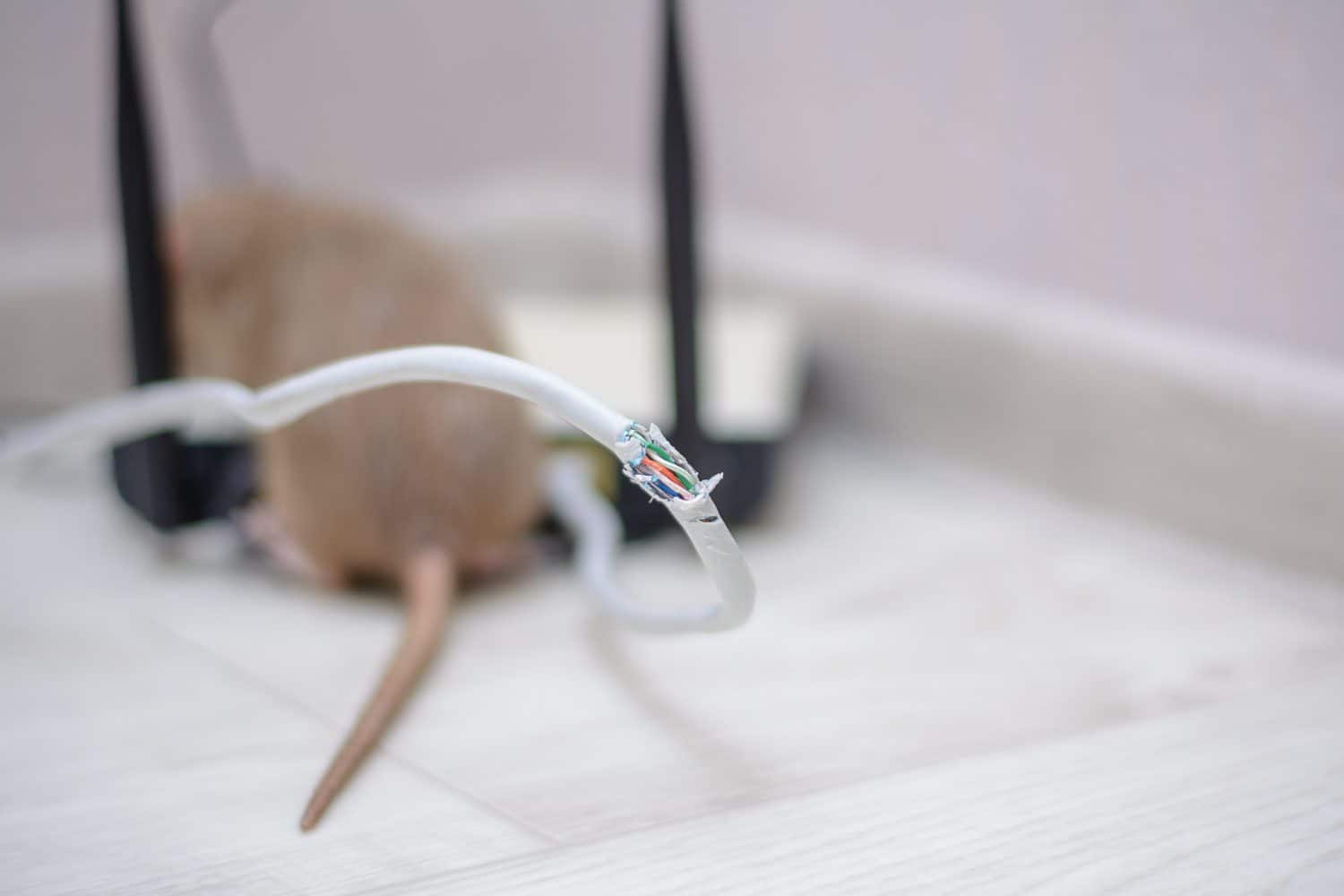
Mice multiply quickly. A single pair of mice could be responsible for over 5,000 mice in a year.
©alexeisido/Shutterstock.com
Mice and other rodents like to live in dark, secluded places. This makes walls, car engines, attics, and garages the perfect place for them to make a nest. One thing all of these locations have in common is they have wires running through them.
If a mouse is trying to make its way through a wall, wires may get in their way. To eliminate the obstacle, mice will chew through wires to make the easiest path. While wire is comprised of metal surrounded by plastic insulation, it’s no problem for a mouse. The core of wire is made from copper, which is a soft metal that mice can easily chew through.
While mice can chew through copper, they often don’t, which is quite dangerous. If a mouse chews the insulation off of a wire and leaves the wire exposed, it could result in a fire. Bare wires touching other bare wires can short out circuits. Additionally, if the exposed, hot wire comes in contact with insulation or other materials around it, it can easily create sparks. This can backfire on the mice as well: a mouse can easily electrocute itself by chewing through wires.
Preventing Mice From Chewing Wires
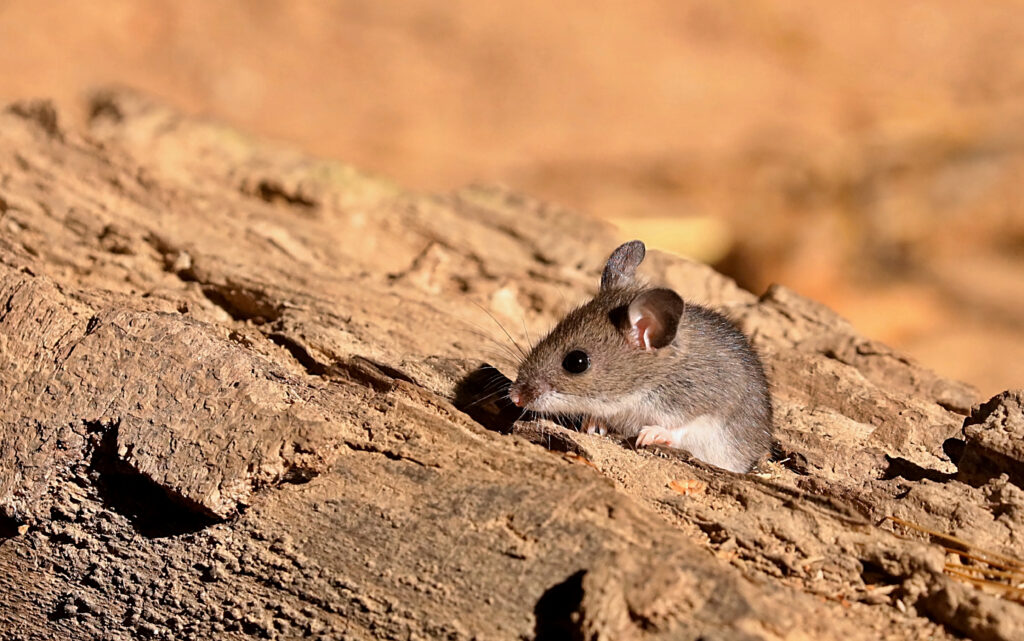
Deer mice usually nest in trees but move into manmade structures when the weather gets cold.
©jitkagold/Shutterstock.com
If you think you might have mice chewing on your wires, there are certain things you can look for. Frequently tripped circuits, flickering lights, power fluctuations, burning odors, or visible bite marks on cables are signs that you may have a rodent problem. Once mice are in a space, it can be difficult to get rid of them. However, there are a variety of traps and repellants on the market that can help you effectively and humanely remove mice from your home. You should never poison mice to eradicate them on your property, as it can accidentally be ingested by domestic pets, children, or wildlife.
The best way to stop mice from chewing wires is to prevent access in the first place. Eliminate access points to your house or garage by filling in entry points and holes. Mice can fit through holes just a quarter inch in size, so it’s important to seal holes completely. Some species such as deer mice can easily climb trees to access houses from above, so keep limbs trimmed and away from your roof. It’s important to inspect attics and eaves for potential entryways as well.
The photo featured at the top of this post is © torook/Shutterstock.com
Thank you for reading! Have some feedback for us? Contact the AZ Animals editorial team.




